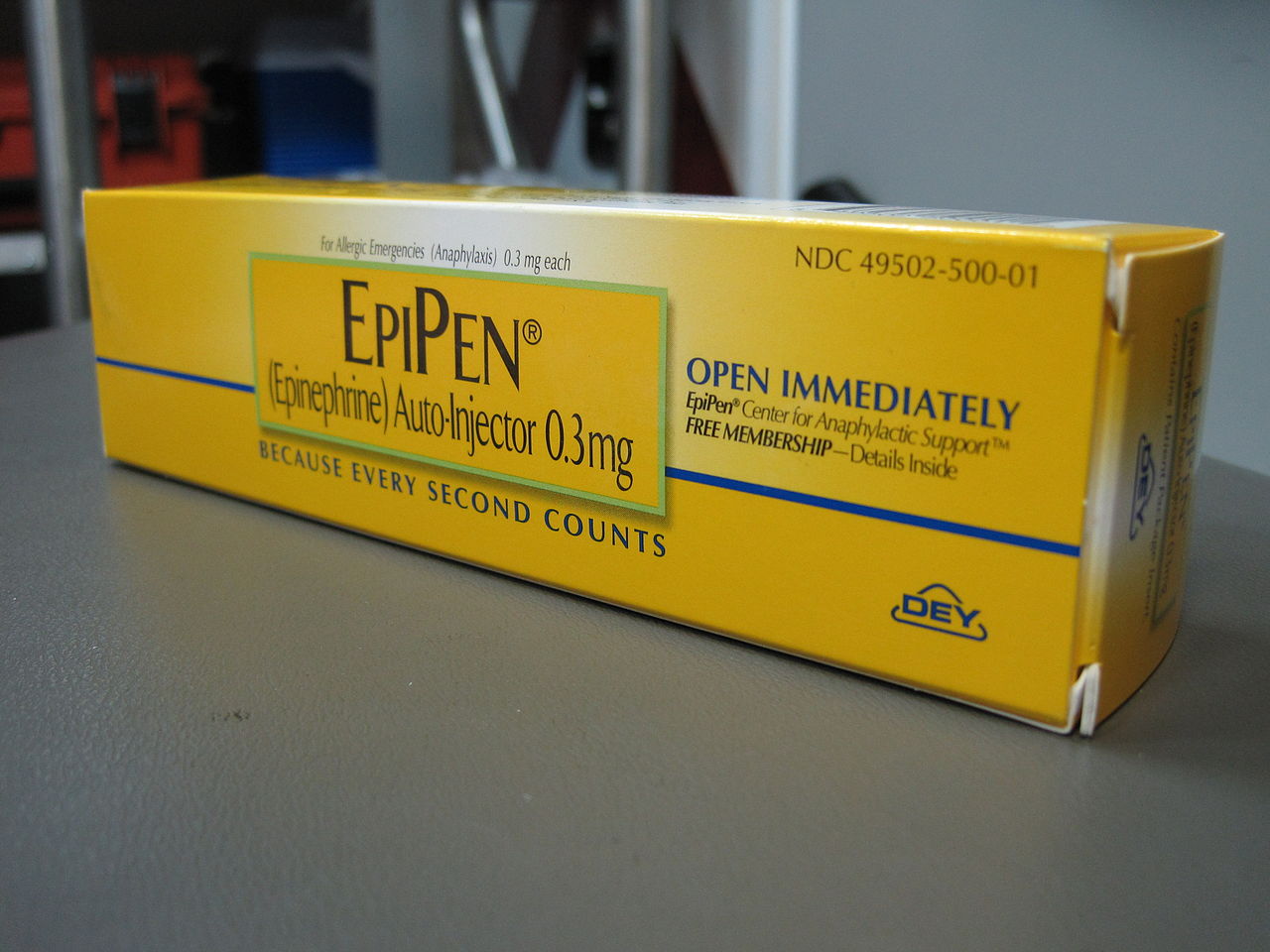
On May 16, 2016, EpiPens reached a shocking price of $608.61. In 2007, the pharmaceutical company Mylan bought the rights to produce the EpiPen and currently holds a monopoly on the product.
Soon after acquiring the EpiPen, Mylan released a two-pack of EpiPens priced at $100. In the years following, they have continually raised the price. As reported in Time Magazine on September 2, 2016, Mylan’s prices increased by roughly 500% in less than a decade.
The medicine in EpiPens, epinephrine, only costs a few dollars to produce. An EpiPen is an emergency auto-injector that releases epinephrine, more commonly known as adrenaline, a hormone that works to relax muscles in the airway and tighten blood vessels during an allergic reaction. The Asthma and Allergy Foundation of America cites that 30% of adults and 40% of children are affected by allergies. On August 24, 2016, The Wall Street Journal reported that 3.6 million Americans were prescribed EpiPens in 2015. This issue affects many demographics of Americans, regardless of socioeconomic status and race. Families with young children, schools, and adults who are at risk for life-threatening allergic reactions need to have EpiPens in the car, vacation homes, and carry them at all times.
Unfortunately, Mylan’s price gouging on EpiPens is not unique. For instance, Turing Pharmaceuticals increased the cost of Daraprim, a drug used by many AIDS and cancer patients, from $13.50 to $750 in the past year.
Dr. Angela Bellizzi Salanitro, MD is a retired pediatric allergist who became an allergist because she grew up in a household with many asthmatics and saw the difficulties that the condition presented.
Salanitro testifies to the importance of the EpiPen. She says, “The EpiPen is a practical tool for saving lives. Regardless of the price, it is a necessary, life-saving medication, and the patient has to have it.” She says of Mylan’s 500% price increase, “what’s happening now is really a tragedy. No matter what socioeconomic group you are dealing with, or regardless of what insurance you have, it’s got to be available for all those in need. As I said, it really should not be that expensive.”
In response to Mylan’s price increase, Hillary Clinton, Democratic presidential nominee, commented about the unjustifiable hike, “pharmaceutical manufacturers should be required to explain significant price increases, and prove that any additional costs are linked to additional patient benefits and better value. Since there is no apparent justification in this case, I am calling on Mylan to immediately reduce the price of EpiPens.” Donald Trump, the Republican presidential nominee, who has invested hundreds of millions of dollars into Mylan Pharmaceuticals, has not yet released a statement about what he would do regarding the rise in the cost of EpiPens.
Mylan responded to the outbursts and released a “generic” EpiPen priced at $300, half the price of the original product. Although a number of brands are creating new, competing products similar to the EpiPen, many face difficulties getting their product approved by the FDA.





